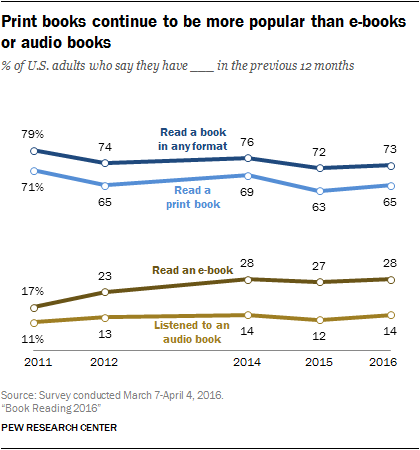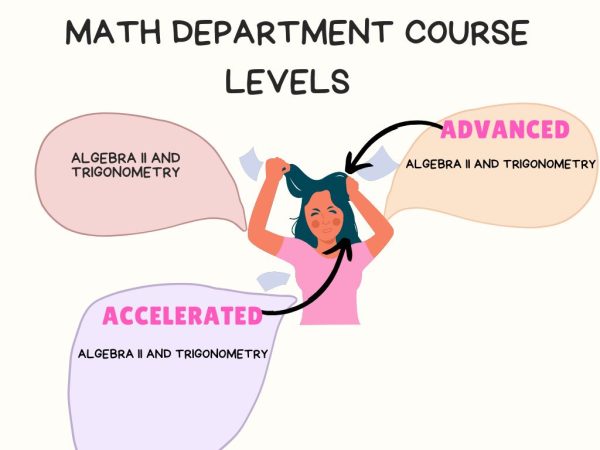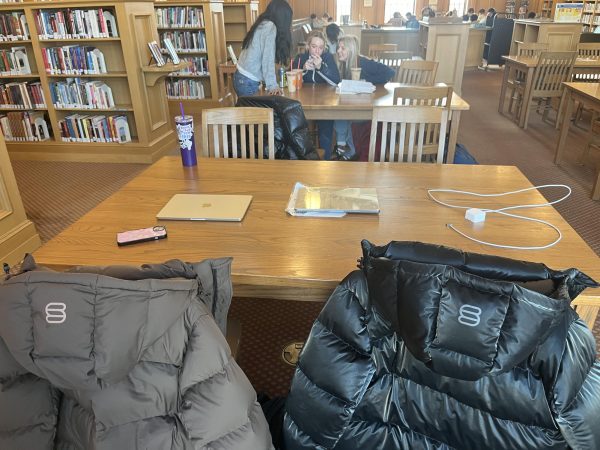Does a paperless environment create too much screen time?

Dystopian novels, though sometimes depressing and dark, help reveal certain aspects of society that are rather adverse to everyone’s benefit. In the well-known dystopian novel Fahrenheit 451, by Ray Bradbury, the rather tyrannical Fire-Captain Beatty lectures one of his Firemen about how society has become ravenous for information and, in some instances, exudes a competitive plight to be up to par with one’s neighbor’s knowledge. Beatty explains that people strive to be aware of the news but lack time so they are given abbreviated versions from a singular perspective. He continued on stating that books are less appealing because they require more thought than television. He deems television to be the condensation and sped-up version of books, formed for easy digestion and primarily made regarding the “snap-ending.” These “snap-endings” can be found in tabloids and reflect the information viewed on our social media platforms. Though the technological predicament that Beatty speaks of are extreme, some parallels can be drawn between our society and that of Fahrenheit 451 in terms of digitalization. Many students suffer from the over-use of technology that changes the way we spend our time and has affected how we obtain information. With time taken apart from technology our minds benefit as they are allowed time for relaxation and strengthening as screen time can cause a multitude of types of strain.
I believe that the decision to teach and learn using only technology creates too much screen time for students. These new innovations of technology have undoubtedly benefited society as they offer myriad conveniences. Though these positive effects come in multitudes, many negative effects include the extended usage of technology.
One effect of technology is a decreased attention span. Using pen and paper allows the writer to process information better as one needs to go slower to write the lesson down, allowing for more focus and retention. After observing a study conducted to ascertain the effect of technology on the brain, Nicholas Carr, American author of books on business, technology, and culture, remarked, “When we go online, we enter an environment that promotes cursory reading, hurried and distracted thinking, and superficial learning. Even as the Internet grants us easy access to vast amounts of information, it is turning us into shallower thinkers, literally changing the structure of our brain.” For technology users, it has led to an increase in information that is quick to read and easy to digest so that we can keep up with the ever-changing news. With that, attention-spans now dwindle as we are constantly surrounded by this information. It is common now that users will read what is given to them regardless of if the information is important but be led to the bigger word as it sticks out.
The use of pen and paper to take notes is more effective than the use of a laptop, notwithstanding handwritten notes taken on an iPad. The Learning Scientists reports on the effectiveness of pen and paper versus technology by saying, “Typing out a transcription of the material is likely what is causing less learning; when students take notes by hand, they often cannot write everything and must put the material into their own words.” In an article by The Guardian titled, “Handwriting vs typing: is the pen still mightier than the keyboard?” the lack of original thought due to the usage of computers is supported.
Our society has become more self-centered with the influx of technology. We have been offered a myriad of conveniences that have bettered our world but have these conveniences have negatively affected social skills, interaction, and mental health. Another negative arises when taking into account what screentime does to our bodies and minds. An article from Rally speaks of effects on teens saying the amount of time spent on a screen takes a mental toll that relates to self-confidence, social skills, emotions, and personality. Screen time also incorporates a physical element affecting weight, sleep, and overall health. As logic would have it, not using paper and pen as conventional methods for schooling increase screen time for both teachers and students. Rally reports that students are reportedly spending “6.5 to 8 hours a day looking at screens.” With learning taking a solely technological approach screentime is bound to increase.
Going paperless is affecting our pastimes as well. Sitting down to read a book has become a less common activity, becoming an arduous task. The lack of reading books may be the result of the fact that our brains are used to consuming fast-paced information. In being fed information at such a high speed and in such a frenzied manner, it is hard to sit down and read a novel for an extended amount of time. Similarly to how using pen and paper to take notes requires one to take their time, reading books requires the brain to move at a slower pace, which is not something that using technology has trained our brains to do. What once was a society that encouraged literary immersion, as the sole form of entertainment, is now in the form of tabloids and things one may find on the internet. Reading has been proven to be extremely beneficial, stimulating the mind and providing a workout for the brain. Statistics have shown a major decrease in the implementations of this beloved pastime in everyday life over the years. For example, as the Pew Research Center reports, around a quarter of adults haven’t read a book in the last year. In 1978, eight percent of adults did not read a book in the past year while in 2014, 23% of adults had not read a book in the past year. As technology has swept in a swirl of self-care and ways to make the mind and body more healthy, it is ironic that books have been swept under the rug.
Though innovation causes progression and evolution, this change can be for the better and for the worse. Though our negative evolution is not the same caliber of that in Fahrenheit 451, there is a correlation that can be drawn between our societies that is borderline prophetic. Ray Bradbury assumed that technology would soon become all encompassing, which to a degree it has, and his work has helped show our society what not to emulate and almost serves as a warning for us.
Going paperless does not mean we will immediately become this dystopian society displayed by Bradbury, but it poses many negative elements such as too much screen time. Returning to our roots of reading books and writing with pen and paper could become the adversary to the negatives incurred too much screen time. Reading, and returning to a seemingly archaic pastime, can give us a moment’s reprieve from the hustle and bustle of our society and could allow us to relax. Doing an assignment with pen and paper could potentially help one to focus more than using a laptop and reading a book could allow one to give their brain a respite from the fast-pace its neurons are used to moving at. Reading does help strengthen the mind so there is also the incentive of a stronger, more apt mind, which I for one find appealing as a student. Some positive benefits of a technological reprieve are reported by UW Health which states that closer relationships, more productivity, increased focus, increased self-worth, more mindfulness, reduced stress, and increased physical activity can be incurrent. Although many benefits result from a lull in the usage technology, contemporary humans are reliant on it to the point in which UW Health comments, “adults spend more time behind a screen these days than they do sleeping.” This demonstrates the borderline inability for us to be apart from technology though myriad benefits would be found in a brief technological recess. Consequently, our society will continue to evolve and may even become built to withstand the detrimental effects of prolonged use of technology as we morph as a species.





